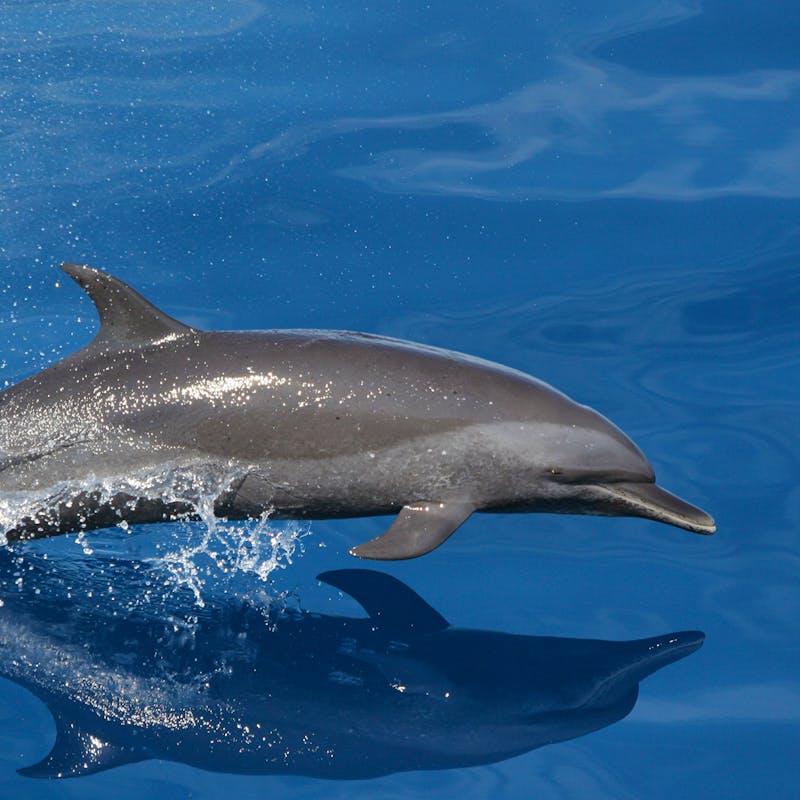Oceans, covering two-thirds of Earth, are so vast and so deep that it’s easy to take their importance for granted. They provide us with oxygen, and they regulate our climate by removing carbon dioxide from the atmosphere — important functions for both humans and wildlife.
Unfortunately, the world’s oceans — home to whales, sea otters, ice-dependent seals, dolphins, manatees, seabirds, sea turtles, sharks and other marine life — are in a sea of trouble. The oceans are overworked; they cannot remove carbon dioxide from the atmosphere quickly enough to keep up with how much we create, which is causing ocean acidification. The Arctic Sea is warming at twice the rate than past years, which is reducing sea ice — a growing threat to our marine mammals. Just recently, scientists shared that over a third of the Great Barrier Reef is dead, a permanent fate for the species and a damaging one for species that depend on the reef for shelter and food.
The health of the Earth’s oceans are indicators of our planet’s overall health – when they’re in trouble, so are we. So, it’s important to keep our oceans healthy not just for marine life, but also for the future health of the entire planet.
Several of our teams work tirelessly to protect the diverse sea life in our oceans. This World Oceans Day, we wanted to take the opportunity to give you all a glimpse into the work we have been doing over the past few months to conserve marine life along the West Coast and in Alaska.
Along the California Coast – California Representative Joshua Hanthorn

From whales and sea otters to pelicans, seals and sea turtles, a myriad of wildlife calls the California coast home. Defenders fights the good fight to protect critical and endangered species along this 840-mile coastline. Even for a state that has made significant strides to protect its natural landscape and wildlife, one of the greatest and most persistent threats marine wildlife encounters on these golden shores is oil spills, which can be very dangerous to natural communities. Defenders has supported a number of bills in the California state legislature that would help prevent and mitigate future oil spills along the coast. The proposed Coast Oil Well Cleanup Act, for instance, creates a path forward for the State Lands Commission to clean up legacy oil wells that are leaking oil into California’s ocean and coastal waters.
We recently weighed in on proposals to discharge raw sewage and graywater into marine habitats critical to the Pacific Ocean’s ecosystem. And of course, we are working diligently to protect the charismatic and endangered Southern sea otter. A quick note to Californians: If you haven’t filed your California Tax Returns yet, don’t forget to donate to the Sea Otter Tax Check-Off!
In the Pacific Northwest – Northwest Representative Elizabeth Ruther
In Washington, the health of Puget Sound and the entire Salish Sea is a top priority. Southern resident orcas and other marine life that call it home are impacted by toxic pollutants that enter the ocean from storm water runoff, abandoned vessels, and other sources. We are working to raise awareness about the chemicals that come from these sources and how they impact orcas and salmon in our waters. Reducing the use of chemicals that bio-accumulate in ocean wildlife is an important step toward recovering these species.
We are also supporting federal legislation called the PUGET SOS Act (HR 3630), which aims to increase coordination between federal agencies to quicken the pace of Puget Sound recovery. We are researching ways to remove barriers for county participation in programs that decrease the likelihood of vessels becoming marine debris and releasing harmful chemicals. Defenders is also working to protect marine mammals from vessel impacts like approaching too closely, vessel noise, and increasing vessel traffic. And we are working to increase permanent funding for on-water enforcement so that boats keep a safe distance from marine mammals.
On our Alaskan Shoreline – Alaska Program Director Karla Dutton
Alaska has 6,640 miles of coastline. Including its beautiful islands, it has 33,904 miles of shoreline bordering not only the Pacific Ocean but the Gulf of Alaska, Bering Sea, Chukchi Sea, Arctic Ocean and Beaufort Sea. Countless animals call these waters home, such as sea otters, sperm whales, Cook Inlet belugas, North Pacific Right Whales, Bowhead whales, five species of ice seals, polar bears, Pacific walrus, Dahl porpoise, salmon sharks and orcas.
Our work in Alaska focuses on working with communities to reduce conflicts between humans and marine wildlife. For example, we work with local residents to put practical measures in place that help keep polar bears safely uninterested in their community. We also work with Arctic coastal communities on oil spill preparedness and response in the Bering Strait — the region with the largest marine mammal migratory path, and increasing threats from shipping due to sea ice loss. We work with scientists to improve data collection to help recover the endangered Cook Inlet beluga whale. We also provide remote cameras that document the causes of walrus stampedes, so those threats can be minimized or eliminated. And we sponsor young Alaska Native scientists working on polar bear conservation research.
While we keep working day in and day out to protect oceans and marine life from climate change, pollution, ocean acidification, overfishing and other problems, the really great news is that every single day, every single one of us can do something to protect the ocean, the wildlife that rely on it, and our own health. Here are some great ways you can honor World Oceans Day every day >






